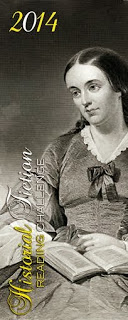 I rounded out 2014 by finishing Hilary Mantel’s Wolf Hall, the first book in a planned trilogy about Thomas Cromwell, the second book of which is Bring Up the Bodies. Both Wolf Hall and Bring Up the Bodies were awarded the Man Booker Prize (2009 and 2012, respectively).
I rounded out 2014 by finishing Hilary Mantel’s Wolf Hall, the first book in a planned trilogy about Thomas Cromwell, the second book of which is Bring Up the Bodies. Both Wolf Hall and Bring Up the Bodies were awarded the Man Booker Prize (2009 and 2012, respectively).
Wolf Hall introduces Thomas Cromwell, the son of a blacksmith, who rises to become one of Henry VIII’s chief ministers as well as an architect of the Protestant Reformation in England. The book begins with Thomas Cromwell’s decision to make his way across the sea in Europe after a particularly vicious beating from his father. The story continues after Cromwell has returned to England and entered the service of Cardinal Thomas Wolsey, the king’s chancellor. The rest of the novel chronicles Wolsey’s fall and Cromwell’s subsequent rise through the eyes of Thomas Cromwell, ending with Thomas More’s execution.
The Tudors are well-trodden ground at this point. Mantel manages to breathe fresh life into their story by telling it through the point of view of Cromwell, who has not fared well in history and whose point of view has been somewhat neglected as a result. In many ways, this book reminded me a bit of Marion Zimmer Bradley’s The Mists of Avalon, in that Bradley’s retelling of the story of King Arthur by the women in his life—Igraine, his mother; Morgan le Faye (or Morgaine), his sister; and Gwenwhyfar (or Guinevere), his wife—was perhaps the freshest version of the Matter of Britain I’ve read in the last twenty years largely because Bradley chose to tell the story with voices often silenced. This formula works wonders for making old hat like the Tudors interesting again, just when I thought I was a little sick of them.
Wolf Hall is meticulously researched, but I never felt as if Mantel was trying to impress me by proving she’d dug up some interesting historical fact. She often sent me to research myself, so I could find out more about something or other that happened in the novel. As such, I learned some interesting things. For instance, I had not realized that Cromwell was such a protege of Cardinal Wolsey, and it struck me as odd, given the way in which Cromwell championed the Protestant Reformation.
I loved Cromwell’s dry wit. He comes across as compassionate to his loved ones, but no one to mess with to his enemies. And he has a long, long memory, as Thomas More discovered. Cromwell leaps from the page as a shrewd businessman and judge of the prevailing winds—it will be interesting to see how Mantel depicts his downfall given how lethally sharp he has come across in this first book.
I know how Cromwell’s story ends, and I have to say, I am a little sad at the prospect of reaching the end of his story in the third planned novel in the trilogy, The Mirror and the Light, rumored to be due out in the coming year.
Rating:




